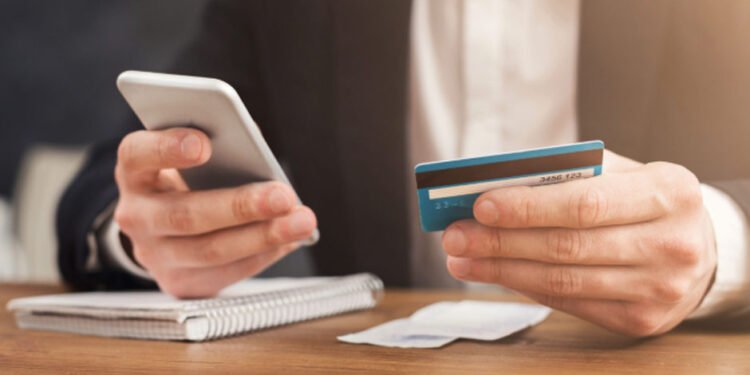Do you know how to protect your personal and financial information? Cyber threats are everywhere, and keeping your data safe is important. Hackers try to steal passwords, credit card details, and personal records.
Simple mistakes can put your security at risk. Strong passwords, secure networks, and smart habits help keep your information safe. Learning how to protect yourself can prevent fraud and identity theft.
Stay alert and take steps to secure your data. Want to know the best ways to protect your information? Keep reading to learn how to stay safe.
Protect Your Passwords
Strong passwords keep your personal and financial information secure. Weak passwords make it easy for hackers to steal your data. Use a mix of letters, numbers, and symbols. Avoid using common words or personal details. Each account should have a unique password.
Never share your passwords with anyone. Change your passwords regularly to stay safe. A password manager can help you remember them. Enable two-factor authentication for extra security. Be careful where you enter your passwords. Public computers and shared devices are not safe. Protecting your passwords helps prevent identity theft. Always keep your information secure.
Use Secure Networks
Using secure networks keeps your personal and financial information safe. Public Wi-Fi is not safe for sensitive data. Hackers can steal your details on open networks. Always use a trusted and private connection. A VPN adds extra security when browsing online. Secure networks help with securing your bank accounts. Avoid entering passwords on unsecured websites.
Look for “https” in the web address before logging in. Home Wi-Fi should have a strong password. Change your router password from the default setting. Firewalls help block harmful attacks. Keep your network updated to prevent security risks. A secure network protects your information from hackers.
Avoid Phishing Scams
Phishing scams try to steal your personal and financial information. Scammers send fake emails, texts, or website links. These messages look real but are designed to trick you. Never click on unknown links or attachments. Always check the sender’s email for strange details. Banks do not ask for passwords through email or text.
Avoid entering personal details on untrusted websites. Phishing scams can lead to stolen identities and fraud. Securing bank accounts starts with staying alert. Use spam filters to block fake messages. Report suspicious emails to your bank. Keep your software updated to prevent security risks. Staying cautious helps protect your information.
Enable Two-Factor Authentication
Two-factor authentication adds extra security to your accounts. It requires a second step to verify your identity. This can be a code sent to your phone or email. Hackers cannot access your account without this code. It helps protect personal and financial information. Many banks and websites offer this feature. Enabling it helps keep your data safe.
Even if someone steals your password, they cannot log in. It is an easy way to improve security. Use it for securing important accounts. Always choose a strong and unique password too. Do not share your authentication codes with anyone. Two-factor authentication makes hacking much harder.
Keep Software Updated
Keeping your software updated helps protect your personal and financial information. Updates fix security flaws that hackers can use. Outdated software makes your data vulnerable. Always install updates as soon as they are available. Enable automatic updates for better protection. Security patches help block viruses and malware.
Updated software keeps your devices running smoothly. Hackers target old programs with weak security. Your phone, computer, and apps need regular updates. Updated browsers protect you from phishing scams. Antivirus programs work better when updated. Ignoring updates puts your information at risk. Stay safe by keeping all software up to date.
Monitor Your Accounts
Monitoring your accounts helps keep your personal and financial information secure. Check your bank statements often for unusual activity. Small unknown charges can be a sign of fraud. Report any suspicious transactions right away. Set up account alerts for extra security. Alerts notify you of withdrawals or logins.
Reviewing your credit report helps spot identity theft. Use secure apps to track your accounts. Do not share your login details with anyone. Change your passwords if you notice anything strange. Monitoring accounts helps secure your money. Stay alert to prevent financial loss. Regular checks keep your information safe.
Safeguard Personal Information
Safeguarding personal information helps protect your identity. Do not share sensitive details with strangers. Keep your Social Security number private. Shred documents with personal data before throwing them away. Use strong passwords for online accounts. Be careful when sharing information on social media.
Scammers can use small details to steal your identity. Store important documents in a safe place. Avoid using public Wi-Fi for banking or shopping. Only enter personal details on secure websites. Lock your devices with passwords or biometrics. Regularly review your privacy settings online. Protecting personal information keeps you safe from fraud.
Use Strong Security Questions
Using strong security questions helps protect your personal and financial information. Weak questions make it easy for hackers to guess answers. Avoid using common questions like your birthplace. Choose questions with answers only you know. Do not use answers that can be found online. A good question should have a unique and private answer.
Avoid using family names or pet names. Make your answers long and complex if possible. Do not reuse security answers across different accounts. Update your security questions if needed. Strong security questions add an extra layer of protection. They help keep your accounts safe from hackers. Always choose the most secure options available.
Be Careful With Public Wi-Fi
Public Wi-Fi can put your personal and financial information at risk. Hackers can steal your data on open networks. Avoid logging into bank accounts on public Wi-Fi. Do not enter passwords on unsecured websites. Use a virtual private network (VPN) for extra security. A VPN protects your data from cyber threats. Disable automatic Wi-Fi connections on your device.
Hackers create fake Wi-Fi networks to steal information. Always check if the network is legitimate before connecting. Public Wi-Fi is not safe for sensitive activities. Use mobile data for secure transactions. Logging out after use helps prevent unauthorized access. Staying cautious keeps your information safe.
Learn More About Financial Information Secure
Keeping your financial information secure is important. Hackers and scammers look for weak spots. Strong passwords help protect your accounts. Secure networks keep your data safe. Monitoring your accounts can catch fraud early.
Avoiding public Wi-Fi reduces security risks. Two-factor authentication adds extra protection. Always be careful with personal details. Small security steps prevent big problems.
Visit our blog for more!












